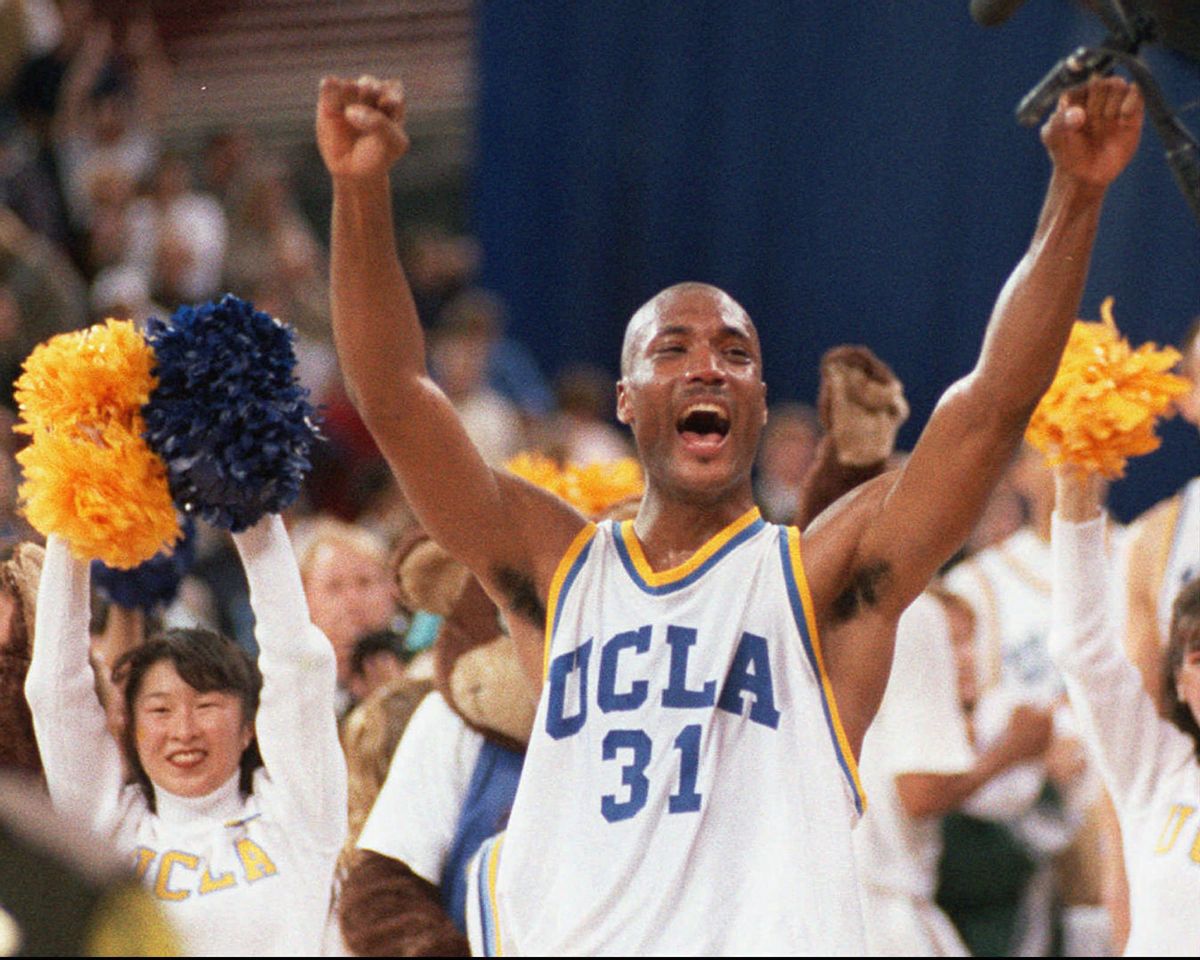Some believe it could upend the way college sports operate. Others say Ed O'Bannon's legal crusade against the NCAA already has.
Five years after the former UCLA star filed his antitrust lawsuit against the NCAA, it goes to trial Monday in a California courtroom. The stakes are high in the biggest challenge yet to the NCAA's authority to operate college sports at a time when big money makes so-called "amateur" sports look an awful lot like the pros.
Here's a look at the issues surrounding the case:
Q: What is this trial about?
A: The NCAA is being sued by O'Bannon and others over the use of their images in broadcasts and video games without compensation. They will argue at trial that the NCAA has acted as a cartel in violation of federal antitrust laws by conspiring to keep players from making money while at the same time pocketing billions of dollars in big television contracts. The NCAA contends that rules on "amateurism" are necessary to retain competitive balance and that a successful lawsuit could create a free-for-all that will seriously damage college athletics.
Q: What are the plaintiffs asking for?
A: In the short term, not much. The 20 named plaintiffs dropped their demands for money in damages a few weeks before the trial in a strategic move to narrow the scope of the case. But they are asking for the judge to rule in their favor and issue an injunction that would prohibit the NCAA from enforcing rules against paying players for the use of their images in broadcasts. Lawyers for the plaintiffs will also argue they deserve reimbursement for legal fees that they said exceeded $30 million even before the trial. "Just to get to trial alone is huge," said Jon King, an attorney handling several related cases. "To obtain an injunction will be revolutionary."
Q: Why would a win be so important?
A: This is the first time a challenge to the way the NCAA operates has gotten this far. It is part of a broader effort to change the way major college sports are operated that includes several other lawsuits challenging various NCAA regulations and a unionization effort that won a vote for football players at Northwestern earlier this year. Plaintiffs and others claim that there is no real amateurism in a college sports industry where coaches make millions, administrators are well paid and everyone profits except the athletes providing the labor. "O'Bannon represents a watershed moment for the NCAA," said Northeastern University School of Law professor Roger Abrams, an expert in sports and antitrust law. "When combined with the Northwestern football team unionization effort, the case raises the question whether the NCAA must totally re-conceptualize its approach to regulating college athletics."
Q: What will we find out during trial?
A: There will be a lot of testimony about the huge amounts of money coming into college sports, literally billions of dollars for the conferences and the NCAA from television rights deals. At least two conferences — The Big 12 and Conference USA — made last-minute challenges in court to keep their television deals secret, arguing they would be at a competitive disadvantage if other conferences and schools knew exactly what the terms of those deals are. There will also be testimony on the NCAA side about the many benefits athletes get while in college, including tuition, room and board, and tutors to help them get degrees.
Q: Will other athletes, say swimmers or golfers, get something from this?
A: No, the class-action suit is limited to football players and Division I basketball players. Those two sports are the biggest revenue generators for colleges.
Q: Why haven't they settled?
A: The NCAA says it can't budge on the fundamental question of paying players, because doing so would upend the model of college sports. The organization also believes many of the lawsuits are lawyer-driven and says athletes are treated better than ever and happier than ever. The plaintiffs did reach a separate settlement with videogame maker EA Sports and Collegiate Licensing Co. for $40 million that will allow some payments to former players. The NCAA dismissed that by saying "the real benefactors of this settlement are the lawyers, who could pocket more than $15 million."
Q: Will this lead to pay-for-play in college sports?
A: Not right away, though the pressure brought by unionization attempts and lawsuits already has led to proposals for the five biggest college conferences to increase scholarship money and change other rules to benefit athletes. Attorneys for the plaintiffs say the whole college sports system doesn't need to be blown up, but there are remedies that will help athletes prosper while at the same time keeping a structure to control college athletics. They're suggesting the establishment of a trust funded by the NCAA and its schools that would take money for the use of player images and dole it out to individual players — but only after they're done with school. "Notwithstanding the NCAA's conjecture that the sky will fall, an unfettered market will not bring college athletics to a halt," attorneys for the plaintiffs wrote in a trial brief.



Shares